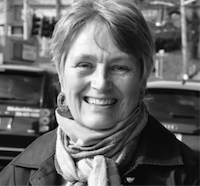May 21, 2024 Editing Your Own Writing – Part 1
 Register now
Register now
21 May 2024
8:00 pm - 9:30 pm (Eastern)
Genealogists write. Their written narratives include stories of ancestral families, biographies of individual ancestors, and explanations supporting genealogical proofs. For their writing to succeed, genealogists—like all effective writers—repeatedly self-edit everything they write. The process results in polished products that the genealogist’s readers will understand, enjoy, and cherish.
Emphasizing genealogical narrative, these two webinars will addresses the self-editing process. Part 1 will focus on “big-picture” editing, including stages of self-editing; focus; keeping the writer out of the narrative; editing the writing’s overall structure, organization, and flow; and improving major and minor subdivisions of written genealogical narratives, including paragraphing. Part 2 will focus on “nitty-gritty” editing, including capitalization, punctuation, sentence structure, spelling, word choice, and reducing word count.
Read about presenter Tom Jones, PhD, CG
Tom Jonesis an award-winning genealogical researcher, writer, editor, and educator. He co-edited the National Genealogical Society Quarterly in 2003 through 2018, and he is the author of the textbooks Mastering Genealogical Proof and Mastering Genealogical Documentation. He has been certified by the Board for Certification of Genealogists since 1994. A professor emeritus at Gallaudet University in Washington, D.C., Tom teaches genealogical research methods at week-long genealogy institutes. He also speaks at national, regional, and local seminars in the United States and internationally, and he writes frequently on genealogical evidence, proof, and problem solving.



 Register Now
Register Now